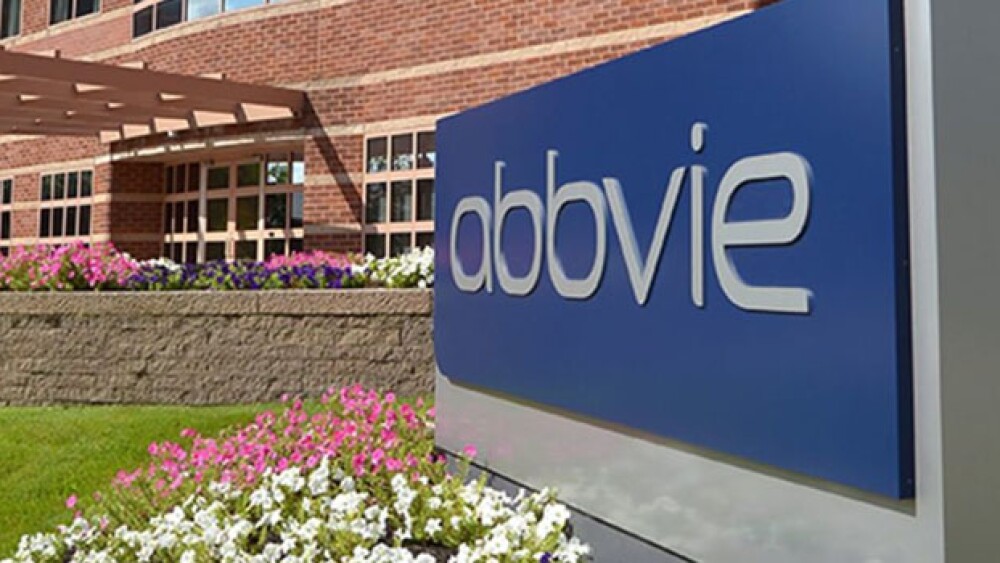What is AbbVie thinking? That’s the question of many investors, analysts and industry watchers as the Chicago-based AbbVie decided to buy up researcher partner Galapagos’ cystic fibrosis portfolio instead of walking away.
What is AbbVie thinking? That’s the question of many investors, analysts and industry watchers as the Chicago-based AbbVie decided to buy up researcher partner Galapagos’ cystic fibrosis portfolio instead of walking away.
Back in June, the Belgium-based Galapagos’ shares dropped more than 15 percent after dismal topline results from a trial of its C2 corrector GLPG2737 in adult cystic fibrosis patients who are homozygous for the Class II F508del mutation. The drug was being tested in a Phase II trial in patients who had been on a stable treatment with market leader Vertex Pharmaceuticals’ CF drug Orkambi for at least 12 weeks prior to treatment.
Then yesterday Galapagos announced topline interim results from part 1 of its FALCON trial that evaluated GLPG2451 and GLPG2222 with and without GLPG2737 in CF. Part 1 was made up of adult CF patients homozygous for the Class II F508del mutations. The trial to date showed the combinations were well tolerated, but the results otherwise were tepid, with about a 3 percent mean increase in ppFEV1 and a mean decrease from baseline in sweat chloride concentration of approximately 25 mmol/L. Analysts were expecting at least a 5 percent mean increase in ppFEV1. Further two-week treatments with the triple combination didn’t show any improvements.
All indications were that AbbVie was going to abandon the collaboration. Today they announced they were buying it.
AbbVie is revising the agreement, assuming full development and commercial responsibility over the investigational program, including clinical and preclinical compounds. Galapagos will no longer be involved but is eligible for future milestones and royalties. Galapagos will hold the rights to future development of GLPG-2737 in non-CF indications.
AbbVie is paying Galapagos $45 million upfront and up to $200 million in milestones.
“AbbVie has a long-standing commitment to finding improved treatment options for CF and our recent work has resulted in advancements that have broadened our understanding of the molecular and genetic basis of this disease,” stated Michael Severino, AbbVie’s executive vice president of research and development and chief scientific officer.
Michael Yee, an analyst with Jefferies and Co., wrote in a note to clients after the results of the triple combination, “We think the first data out today on triple is disappointing, and it remains to be see if AbbVie is just taking it over to evaluate the options and doesn’t seriously plan to do much or will actually move other future triples into Phase I/II. Currently, the competitor does not appear to have any triples that are of relevance at this time.”
There is a pattern of AbbVie and Galapagos having development deals and AbbVie walking away. In 2015, AbbVie left a $1.4 billion deal for its selective JAK1 inhibitor, filgotinib, which was being developed for rheumatoid arthritis. And in June, AbbVie reportedly gave up on the Galapagos triple combination CF treatments.
Vertex remains the dominant player in the CF market. Last week, Proteostasis Therapeutics announced positive preliminary data from three doublet cohorts of its ongoing Phase I clinical trial of PTI-808 and PTI-801, and an enrollment update from its triplet, PTI-808, PTI-801, and PTI-428. These are very early, but promising.
“Doublet combinations, the current standard of care for many CF patients, are the benchmark for current treatment in cystic fibrosis,” stated Carsten Schwarz, Head, Adult Cystic Fibrosis Centre, Lung-Transplantation Program, and Endoscopy Unit, Department of Pediatric Pneumology and Immunology, Charite, Berlin University Medical Center. “These data are the first result seen using an entirely new CF doublet, compare favorably to standard of care, and demonstrate the potential of next-generation CFTR modulators to further improve outcomes in this disease.”





